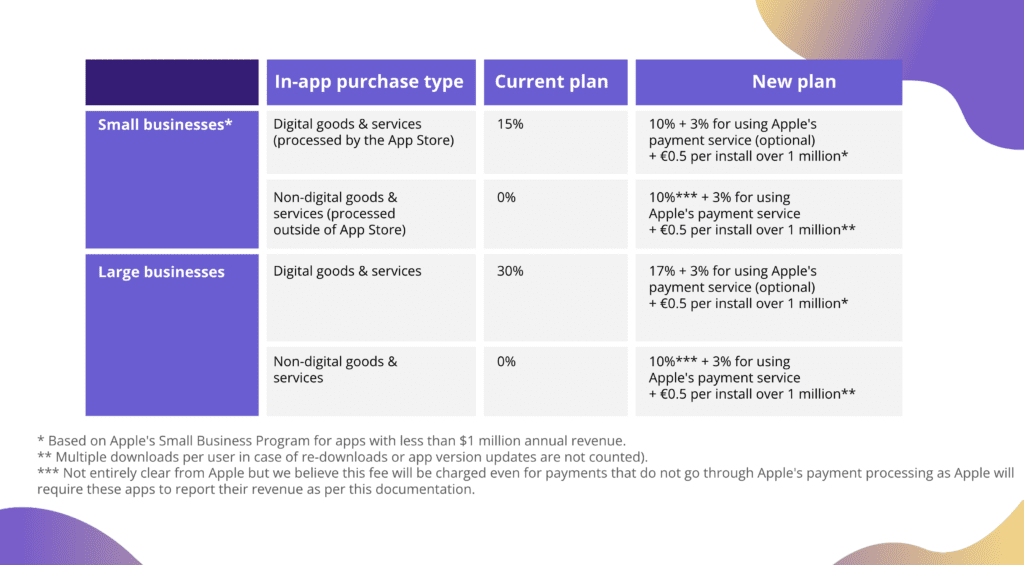Apple’s Core Technology Fee: Innovation tax or clever monetization?
Table of Contents
Today, we are zeroing in on a huge shift in the app world – Apple’s latest manoeuvre, a revised fee structure for its App Store in the EU, isn’t just a headline. It’s a critical pivot point in the ongoing saga of digital market dominance, ostensibly in response to the Digital Markets Act (DMA), but also a clear signal of how Apple wants to dictate, within a tightly controlled ecosystem.
Here’s a breakdown of what’s new about the App Store in the EU
At its core, Apple is shaking up the status quo with a tiered commission model, an option for developers to choose their payment processing path, and introducing the Core Technology Fee. It’s a bold step away from the one-size-fits-all commission strategy, offering a more “nuanced” approach to how apps are monetized within the EU.
Dissecting the Changes:
- Tiered Commission Model: Apple’s offering developers a bit of a breather with commission rates now pegged at either 10% or 17%, based on certain conditions. This is a significant drop from the erstwhile 30% standard, aimed at giving smaller developers a leg up.
- Payment Processing Choices: For the first time, Apple’s allowing a 3% fee for those sticking with its payment processing system, with the door open for developers to seek alternatives.
- Core Technology Fee: This new fee, set at €0.50 per first annual install after crossing the 1 million downloads mark, is a curveball for developers, especially the ones whose apps have a wide reach. It’s a factor that could recalibrate strategies for app distribution and monetization. Hyper Casual gaming apps will have to invest in rethinking their strategies. Cheap CPIs have just become a lot more expensive!
So, what’s the impact of all this?
Some would call Apple’s strategy a chess move, in response to the DMA’s push for a more competitive and innovative digital ecosystem. By tweaking its commission structure and offering payment processing alternatives, Apple is trying to stay attractive to developers amid growing calls for market openness. Yet, the Core Technology Fee is a wild card, potentially reshaping how success is measured and managed in the app world.
It’s not a secret there’s a lot of buzz about whether these changes truly align with the DMA’s vision of an open digital market. The fixed per-install fee, in particular, raises questions about whether it might inadvertently stifle the exploration of alternative app distribution avenues, thereby limiting market diversity.
Now, it’s up to the EU’s team to decide if Apple’s changes are fair or if they’re just a way to keep controlling the market. This isn’t the end of the story. As the EU looks closer at Apple’s moves, we’ll keep an eye out and let you know what happens next. It’s a tricky situation, and figuring out if Apple is playing by the rules isn’t straightforward.
Now, what’s the bottom line of this?
The real question now is how these changes will ripple through the developer community and the broader app landscape. Will they spur innovation and competition, or will they introduce new challenges? Only time will tell, but one thing is certain – sideloading and new marketplaces will open up for innovation.




